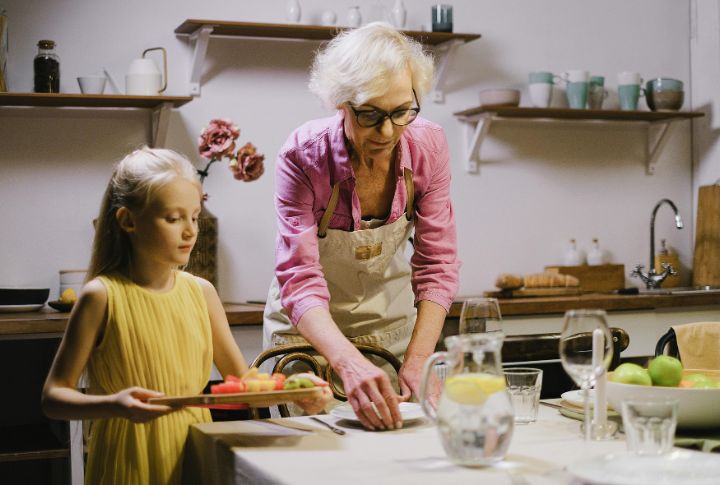
Being the firstborn comes with perks, but also a subtle set of pressures that can shape personality and choices. Eldest daughters often end up overachieving, overthinking, and overextending themselves, sometimes without knowing why. Could you be one of them? Here are 10 signs that show how Eldest Daughter Syndrome shows up in daily life.
You Feel Responsible For Everyone

Eldest daughters usually end up playing caretaker for their younger siblings, making sure everyone behaves and stays out of trouble. That sense of duty doesn’t stop at home—it can extend to friends and romantic partners, too. Some even date younger partners who enjoy being looked after. They even handle most household chores like shopping and cleaning.
You Struggle With Perfectionism

Perfectionism can feel overwhelming; however, eldest daughters typically turn it into a source of strength. This leads to stress and anxiety, but also encourages strong organizational skills. Many eldest daughters leverage this drive to achieve significant milestones early, such as becoming the first in their family to graduate from college or reach other major goals.
You Put Others’ Needs Before Your Own

You know that feeling of never being done? That’s common for eldest daughters. They focus on everyone else, suppress their own feelings, and keep going until it hurts. Even relaxing feels weird, and taking time for themselves can spark guilt. Somehow, they always end up last on their priority list.
You Feel Pressure To Keep Family Traditions

Eldest daughters usually take on the responsibility of managing family routines, holidays, and traditions. While some genuinely enjoy organizing these events, it can become overwhelming. Over time, maintaining these traditions not only shapes their identity but also establishes them as the family’s go-to organizer.
You Feel Pressure To Succeed Academically

From the start, eldest daughters are frequently pushed to excel academically. Grades and achievements typically feel like measures of their self-worth. The pressure may lead to long hours, stress, and burnout; however, it also helps them become capable problem-solvers who carry leadership skills from home into the workplace.
You Rarely Ask For Help

As an eldest daughter, you learned early that independence gets you praise. So you keep doing everything yourself. Now, you’re overloaded and on your own, simply because you never got used to saying, “I need help.” Your people want to help—they just don’t know you need it.
You’re Treated As More Mature Than Your Age

The oldest frequently faces pressure to act more maturely by taking on responsibilities that others their age rarely encounter. These expectations shape social skills and thinking patterns. Some eldest daughters even experience early puberty changes, and many feel disconnected from friends who are not carrying the same weight of responsibility.
You Struggle With Saying No

Here’s what happens to eldest daughters: you learn that helping others makes you valuable. And you end up saying yes to everything. Your own needs get ignored while you take care of everyone else. The result? You’re stressed, tired, resentful, and don’t know how to stop.
You Often Feel Overlooked Despite Efforts

No matter how much they give, eldest daughters sometimes feel ignored. Family and friends may take their efforts for granted, expecting results instead of celebrating them. This ongoing feeling of being overlooked can follow them into adulthood, quietly influencing how they see themselves and their own value.
You Handle Conflict Strategically

Eldest daughters handle conflict like chess masters. Before saying anything, you’re already thinking three moves ahead—what will mom say, how will dad react, will this upset everyone? You’ve learned to keep the peace through careful planning. No wonder friends always ask for advice on tricky situations.

